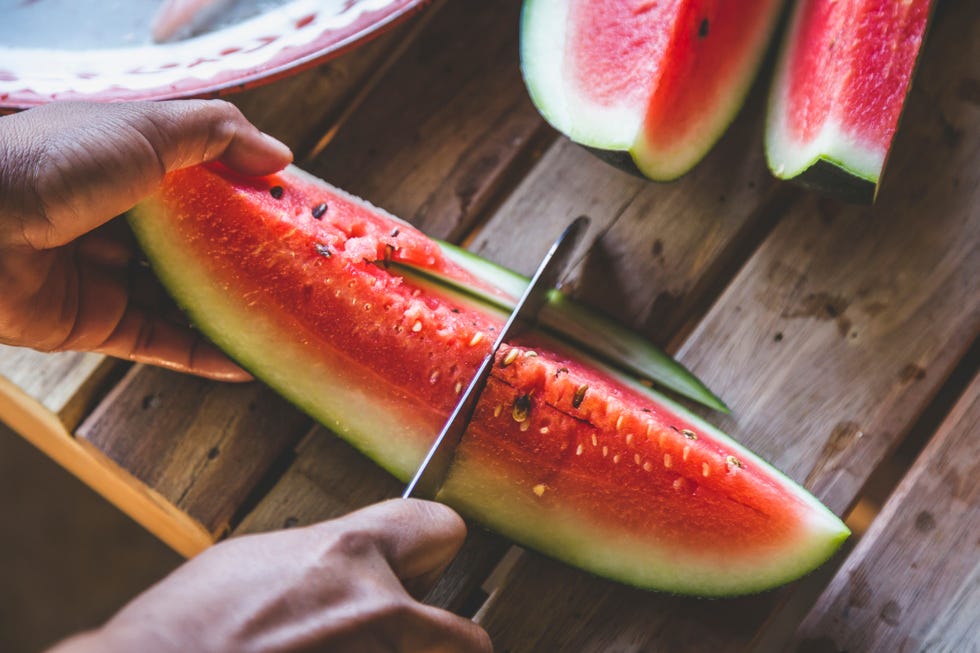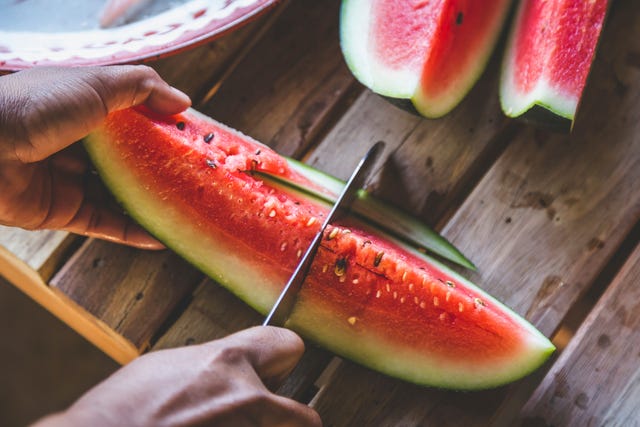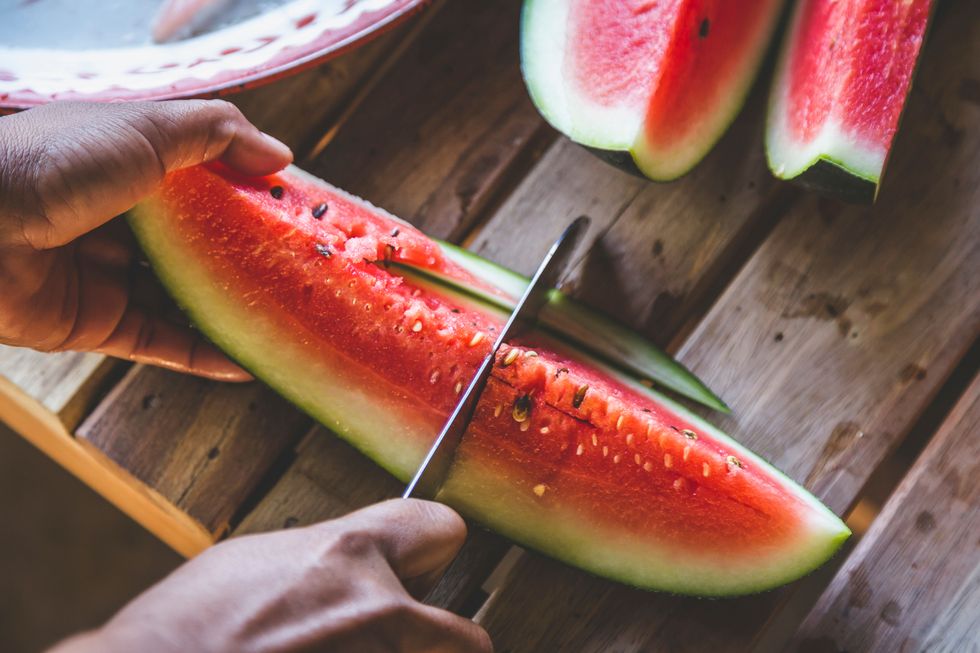

Mongkol Nitirojsakul / EyeEmGetty Images
Go ahead, have as many tomatoes as you want on keto. But what about watermelon? We were curious to find out if you can sink your teeth into the refreshing, nutrient-dense fruit on the keto diet or not, so we reached out to Kim Yawitz, a registered dietitian and gym owner of CrossFit 26 in St. Louis, Mo.
First things first, a quick refresher on what “keto” really means.
Previously reported by Men’s Health, a ketogenic diet requires that fat comprise 60 to 80 percent of your total calories. Protein makes up about 20 percent, while 10 percent comes from carbs.
“The keto diet is a high fat, low-carb diet that was originally designed for epilepsy patients but has become popular for weight loss,” says Yawitz, adding that the keto diet is designed to get you into ketosis—a metabolic state where your body uses your fat stores for energy instead of carbs. “This often involves eating just 20 to 30 grams of carbs per day.”
Fans of the keto diet love that you can lose several pounds in the first few days, says Yawitz, highlighting that this is mostly water weight. “Your body stores about three grams of water for every gram of carbohydrate that lives in your muscles, and that water is released as you use up those carbs for energy,” she says. “Once you use up all of your carb reserves, your body breaks down stored fats and uses them to form ketone bodies, which become your main form of energy on a keto diet.”
Can you eat watermelon on the keto diet?
The short answer: watermelon can be keto-friendly.
“Watermelon is relatively low in carbs compared to other fruits,” says Yawitz, explaining that you can’t stay in ketosis if you eat large amounts of it, or if you’re getting too many carbs from other foods. “But in small amounts, watermelon can absolutely fit into a keto diet.”
One cup of diced watermelon contains approximately 11 grams of carbohydrates, including 0.6 grams of fiber and nine grams of sugar.
“Mathematically, you could enjoy two to 2.5 cups of watermelon per day on a keto diet, assuming you eat no other carbs,” says Yawitz, cautioning that this scenario is pretty unlikely, considering the fact that even non-starchy veggies have carbs. “For example, one cup of chopped cauliflower contains five grams of carbohydrates (of which two grams are fiber), and one cup of Brussels sprouts contains eight grams of carbohydrates and 3.4 grams of fiber.”
For that reason, and to make it easier to get a good balance of nutrients from vegetables and other fruits, Yawitz recommends those on a keto diet eat no more than one cup of watermelon per day.
What’s more, Yawitz says, 20 to 30 grams of carbs add up pretty quickly, and planning your carb intake ahead can help ensure you don’t exceed that limit.
The health benefits of watermelon on keto
One thing Yawitz appreciates about watermelon for keto, specifically, is that it’s very hydrating. “Dehydration is a common side effect of a keto diet, partly because you produce more urine when ketone levels are high,” she says. “Along with drinking more water, eating foods that are naturally high in water content can help you to stay hydrated. Coming in at 92% water by weight, watermelon has the highest water content of any fruit.”
Additionally, one cup of diced watermelon fulfills 20% of your daily quota for immune-boosting vitamin C, Yawitz points out, and it’s also one of the best food sources of citrulline, an amino acid that can be converted into nitric oxide in the body. “Nitric oxide can help increase blood flow to the muscles and (ahem) other parts of the body,” she says. “Small studies suggest that citrulline supplements may help reduce post-exercise muscle soreness and could possibly improve erectile function.”
Bottom line: “Have a slice at your next picnic if you enjoy it, but don’t expect any miracles,” says Yawitz.
This content is created and maintained by a third party, and imported onto this page to help users provide their email addresses. You may be able to find more information about this and similar content at piano.io
